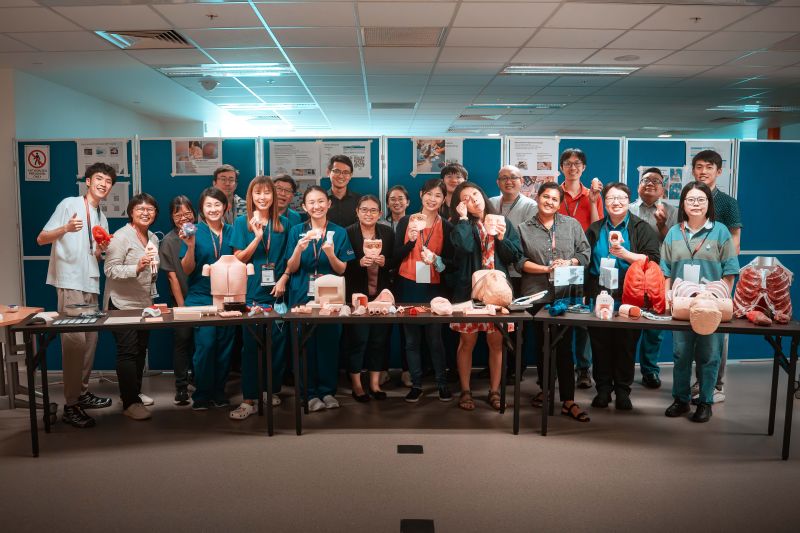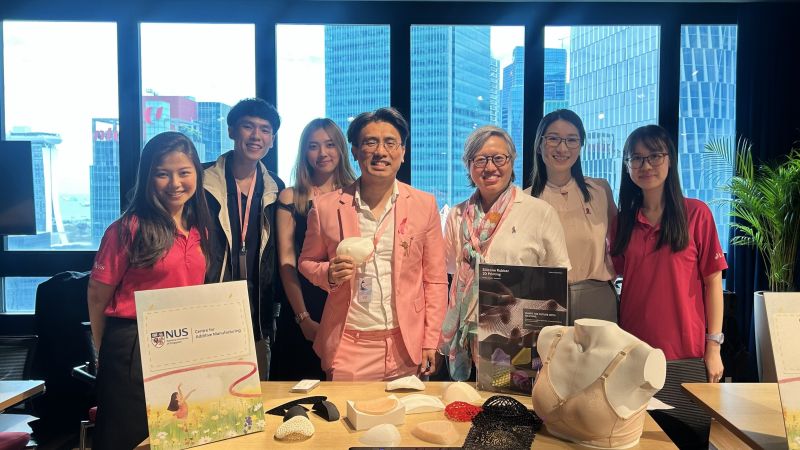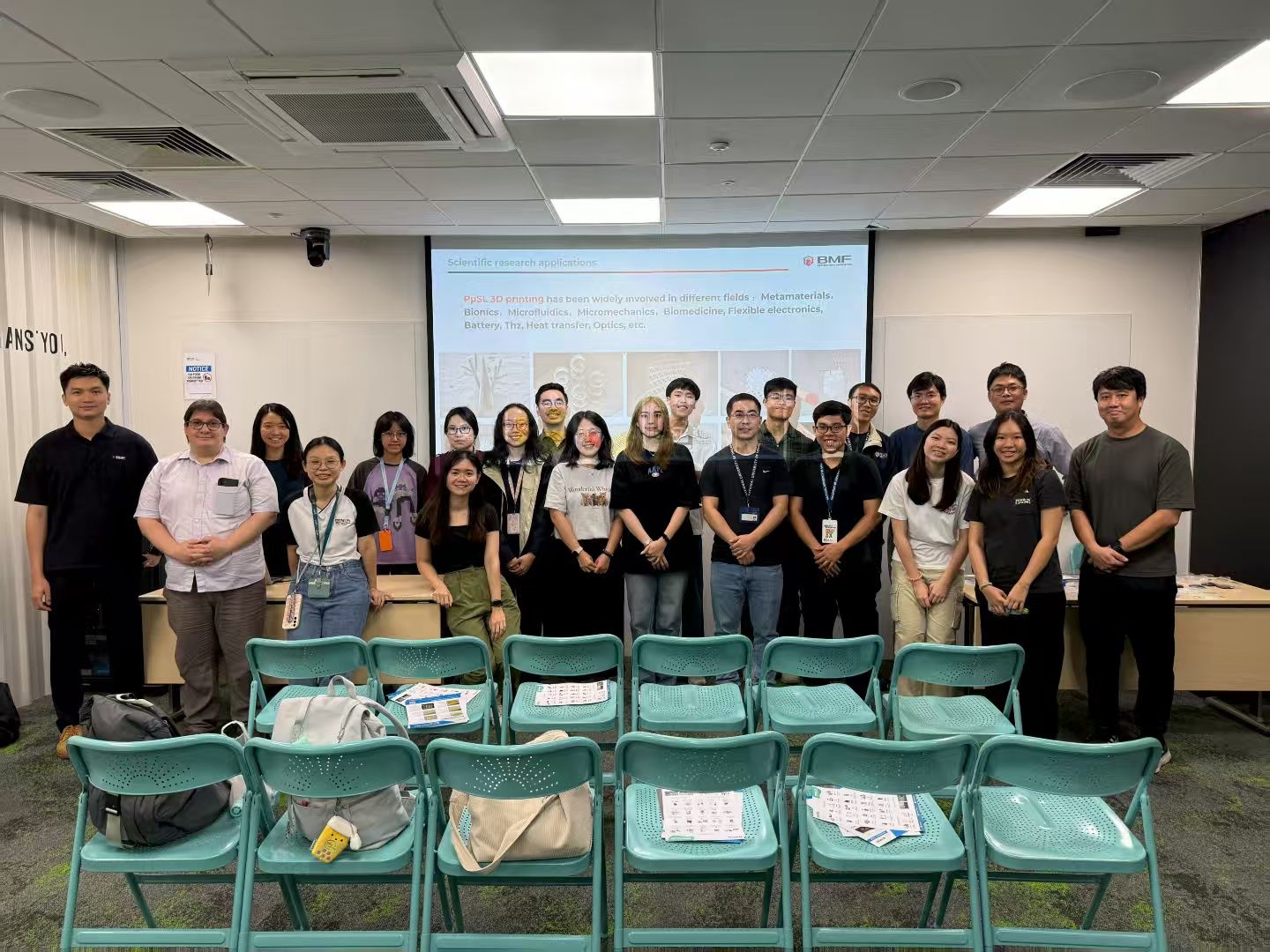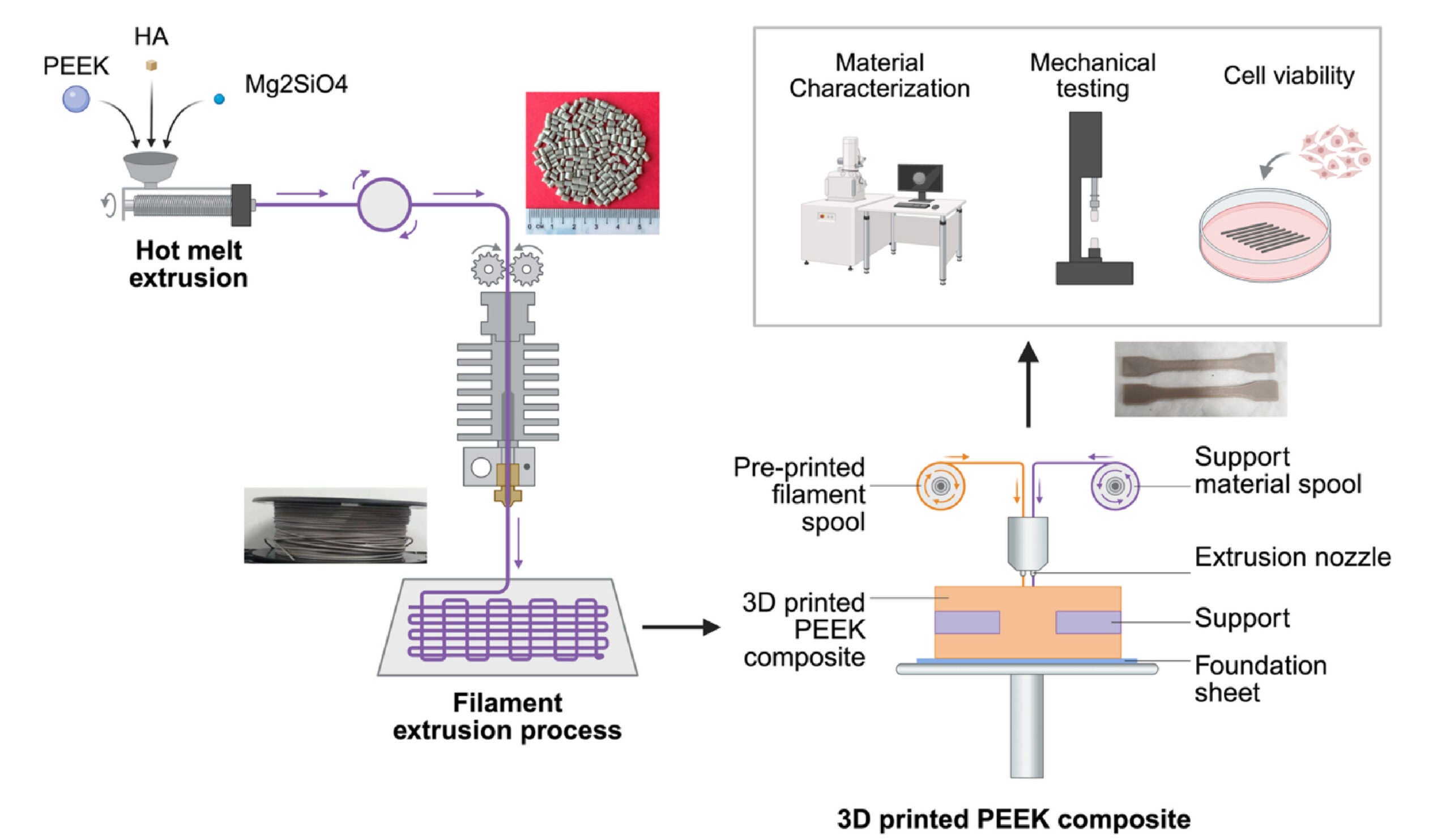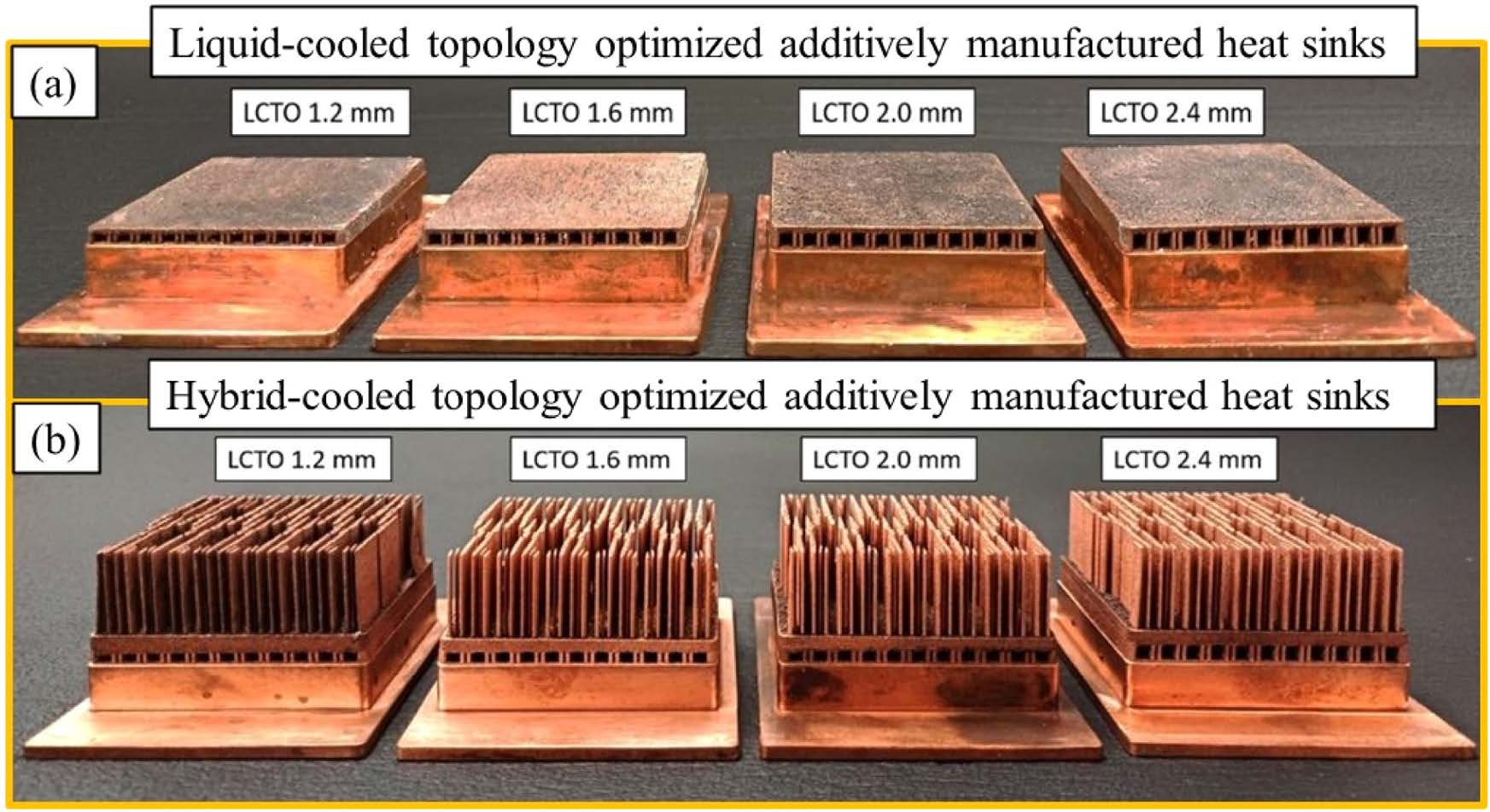Straits Times: NUS scientists develop plant-based ink for 3D-printing that can be used to grow meat in the lab
Researchers led by Professor Huang Dejian, principal investigator of the project and AM.NUS research thrust co-lead, have developed a new plant protein ink that can be used to create scaffolds for growing meat in laboratories in a more cost-effective way. The edible ink is made from the by-products of agricultural grains like maize and barley and is 3D-printed to provide micro-sized structures for cells to form into the intended shape. The plant protein-based scaffolds provide a conducive environment for cells to grow three times faster than they do on traditional plastic-based scaffolds, shortening the process from a month to approximately 10 days. As proof of concept, the team cultured pig muscle stem cells on the scaffold, adding beet extract to simulate the reddish color of meat.
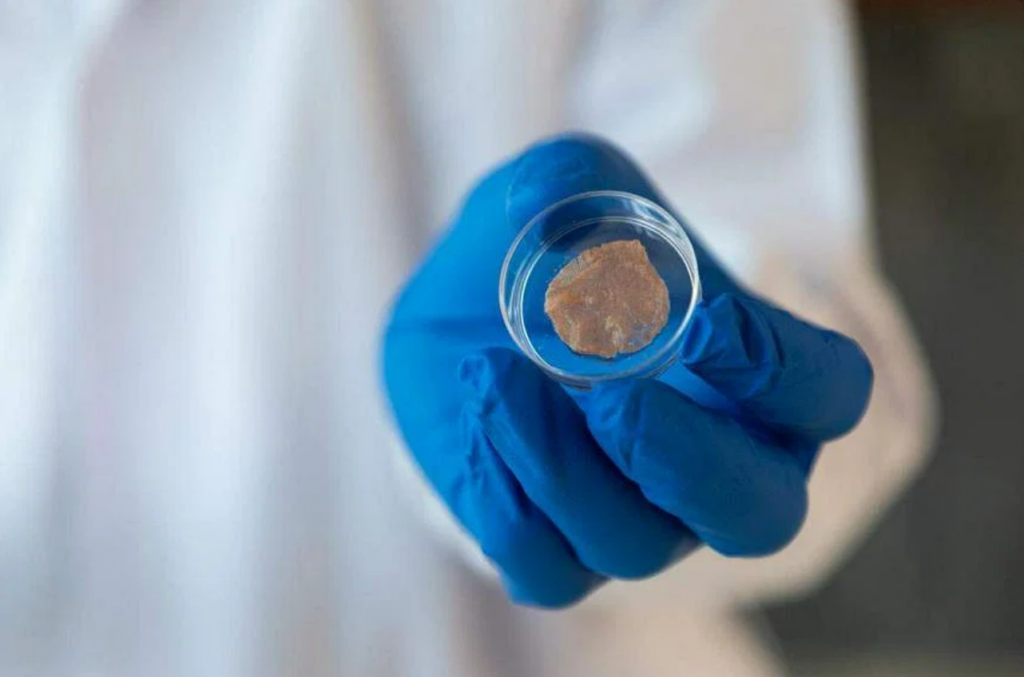
Cultured pork meat is grown using edible cell culture scaffolds. PHOTO: NATIONAL UNIVERSITY OF SINGAPORE
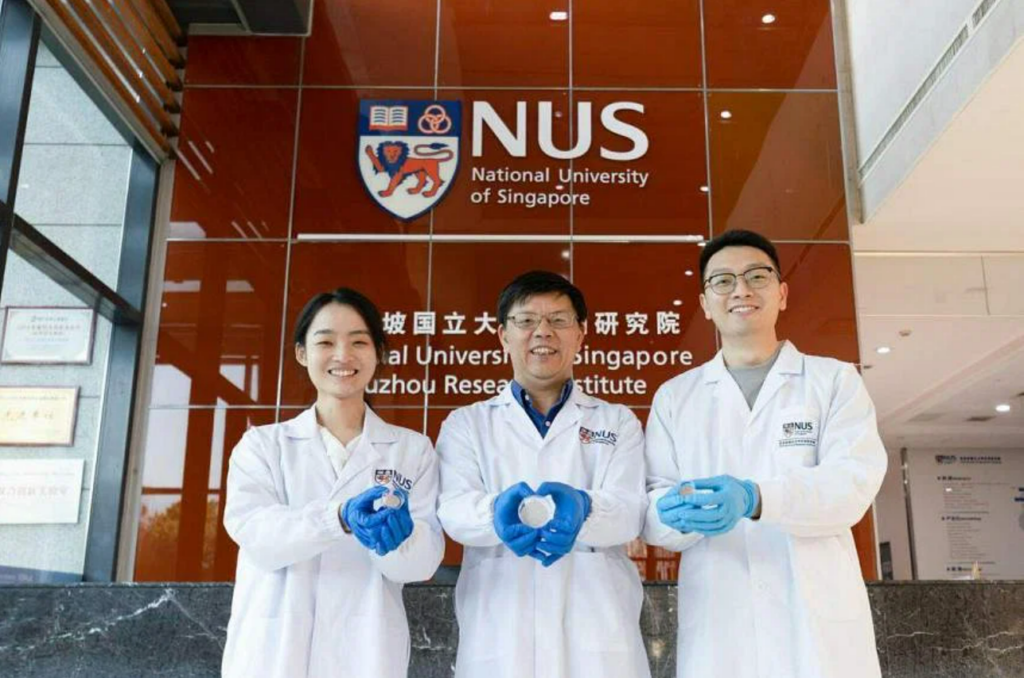
NUS professor Huang Dejian (centre) and his research team members, Ms Su Lingshan and Dr Jing Linzhi, developed the plant-based cell culture scaffolds. PHOTO: NATIONAL UNIVERSITY OF SINGAPORE
Read the news article here.
Follow us on LinkedIn for more research updates.


